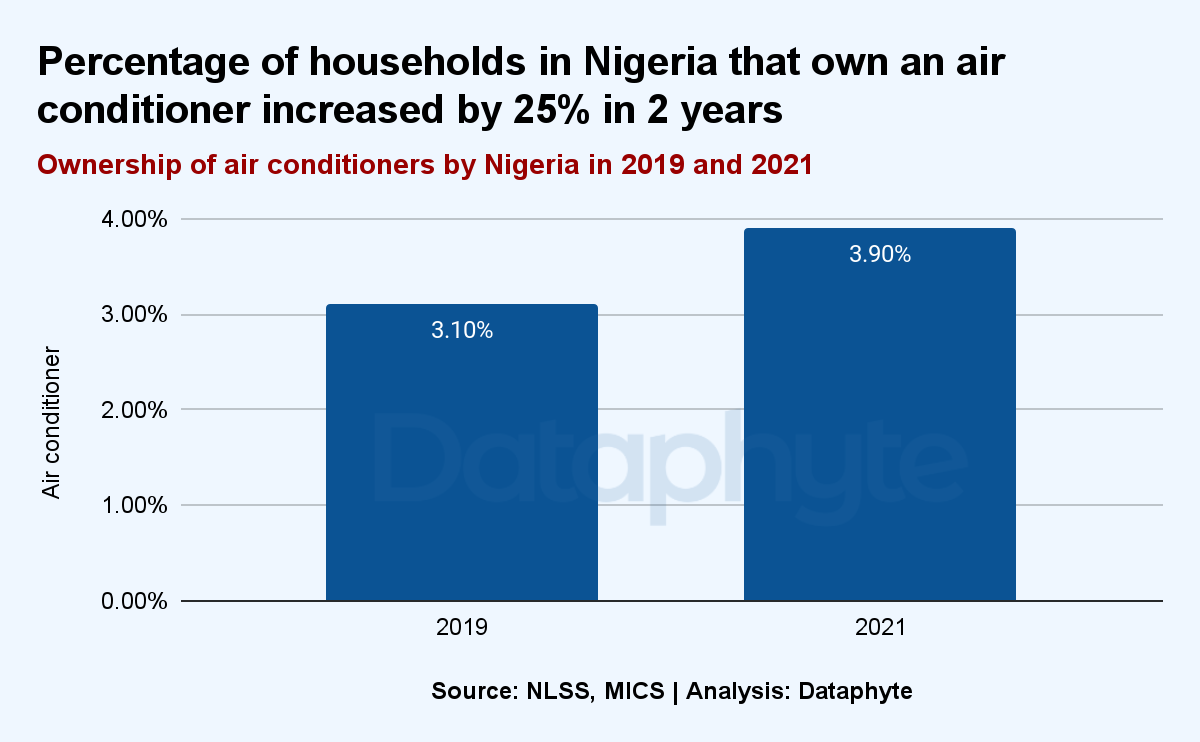Investment in Sleep on the Rise
Person 1: "I don't understand why you're spending so much on an air conditioner."
Person 2: "I know it's a stretch, but I can't keep tossing and turning through the night in this heat. I must invest in my sleep, even if it means tightening my budget elsewhere."
This conversation between two of my colleagues ensued, making me think about how much Nigerians invest in sleeping.
This edition of Pocket Science seeks to shed light on how much a Nigerian invests in his or her sleep.
"Sleep is the cousin of death, and poverty is its close companion." - Suzy Kassem
As much as that quote looks like sleeping can lead to poverty, a study has revealed that good sleep and higher income or reasonable standard of living are positively linked. Those who are poor have been found to lack good sleep.
According to a survey by Hilarys, Nigeria ranked 52nd among 60 surveyed countries, with its people having an average of 6.2 hours of sleep daily. The country whose people have the highest sleeping time is Bulgaria, with an average of 12 hours of daily sleeping time.
According to the United States Centre for Disease Control and Prevention, good sleep requires quiet, dark, relaxing, and comfortable temperatures. Good bedding, pillows, and a fan/air conditioner are also needed.
Whether purchasing a premium mattress or installing an air conditioning unit, Nigerians recognise the value of creating an optimal sleep environment to improve their overall quality of life.
This is evident in the increased percentage of Nigerians who own an air conditioning unit, the increased number of mattress users, and the high percentage of Nigerians who sleep with mosquito nets.
Investment in Air Conditioners
In a climate where temperatures can soar to uncomfortable levels, air conditioning units such as fans and air conditioners have become necessary for many Nigerians seeking a conducive sleep environment.
According to Statista, Nigeria's air conditioner market is experiencing a surge in demand due to the country's hot and humid climate. It is also expected to grow by 5.31% annually from 2024 to 2028.
Source: Statista
According to the NLSS and MICS reports, the percentage of households in Nigeria that own air conditioners increased over the years, highlighting the percentage of urban and rural areas that own these appliances that enhance good sleep quality.
As the demand for ACs in Nigeria increases, so does the price, which can be attributed to the rising inflation that has affected the majority of commodities in the Nigerian market.
This increase can be attributed to the rise in the average temperature of Nigeria’s weather. For instance, August 2023 was the warmest in 42 years, with a temperature of 26.50°C, according to global records (26.90°C in 1981).
Well, installing an AC unit could just be the beginning of your battle against heat. The next steps would be ensuring you’re on an original Band A which supplies a minimum of 20 hours of grid electricity.
And next steps could be buying a petrol or diesel generator to power your AC, in case your electricity supply fluctuates from Band A to Band 0.
Increased Number of Mattress Users
According to market research conducted by Statista, the demand for high-quality mattresses in Nigeria has steadily risen over the past few years.
This surge in demand can be attributed to several factors, including growing awareness of the link between sleep quality and overall well-being, as well as increased disposable income among consumers.
Data from Statista reveals that the number of mattress users in Nigeria is expected to increase by 103% by 2029.
This indicates that people now prioritise the comfort of new mattresses over the discomfort of using old mattresses or other cheaper options like mats.
Furthermore, the emergence of online mattress retailers and the availability of financing options have made it easier for Nigerians to access premium sleep products. This accessibility has contributed to the upward trend in mattress ownership across the country.
Investment in Mosquito nets
Mosquito bites can be an enemy of good sleep, besides the transmission of malaria.
Using mosquito nets is crucial in Nigeria, a nation with different kinds of mosquitoes, to prevent malaria infections, which can be fatal if not properly identified and treated.
Nigerian homes usually use mosquito nets at night to guard against insect bites, flies, mosquitoes, and other insects, as well as any potential diseases they may transmit.
61% of households in Nigeria own any type of mosquito net, while 60% of households in Nigeria own an insecticide-treated mosquito net (ITN).
According to regional analysis, the Northwest has the highest percentage of households that use mosquito nets or insecticide-treated mosquito nets.
Why should you care?
People who do not sleep well due to bad sleeping patterns might die prematurely, irrespective of their financial status, a Sleep Foundation study shows.
Since getting less and less sleep is detrimental to your health and wealth, you should think about investing in your sleep as much as you can.
Thanks for reading this edition of Pocket Science.
It was edited by Khadijat Kareem, who admits she can’t afford the 8 hours of recommended sleep due to her current hustles. It was edited by Oluseyi Olufemi, who needs an Air Conditioner to work during the day more than to sleep at night.








